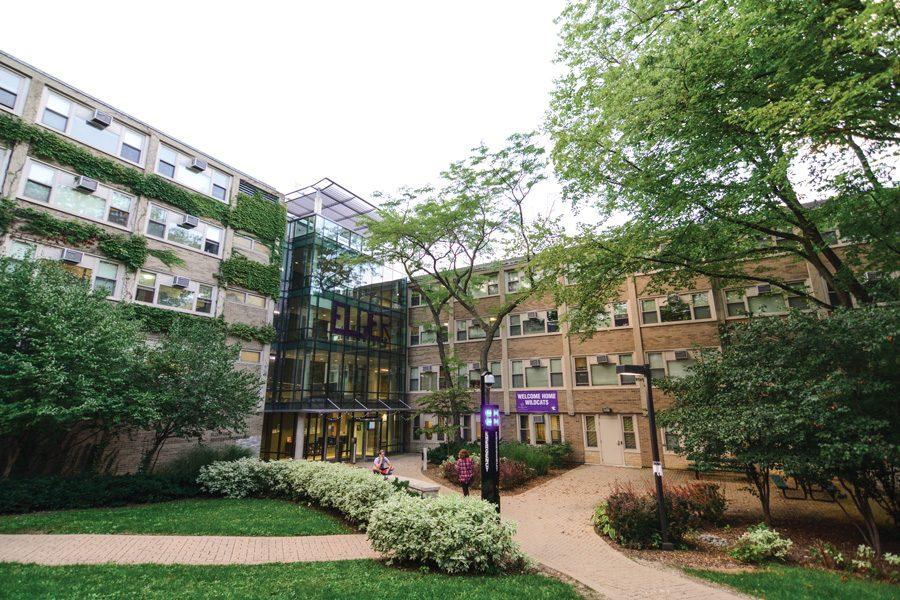University committee to open all-freshman dorms to older students, limit meal plan options
Jeffrey Wang/Daily Senior Staffer
Elder Hall will open to upperclassmen beginning Fall Quarter 2017. The Undergraduate Residential Experience Committee will also limit freshmen to one meal plan option.
January 31, 2017
In attempts to increase a sense of community on campus, the Undergraduate Residential Experience Committee will limit first-years to one meal plan option and open all-freshman dorms such as Elder Hall to other years.
First- and second-year students will be provided a new meal plan that will allow them to enter and leave dining halls without limits, said Paul Riel, co-chair of the committee and assistant vice president for residential and dining services. This change will come with the two-year live-in requirement, which will also be implemented in the fall.
Though upperclassmen will have access to other existing meal plans, the new option will be the only plan available to first- and second-year students. He added that this plan will most likely be cheaper than the Weekly 14 Meal Plan and reduce the complications of being limited by, and having to count, meal swipes.
“The big part of what we’re trying to create is an opportunity for students to create community on campus, and we think food is one of these powerful tools that can happen,” Riel said.
The new plan is similar to the current Unlimited Meal Plan, which offers unlimited access to dining halls along with Wildcat Points and equivalency meals that can be spent at restaurants, C-stores and cafes. However, the finalized plan will likely remove equivalency meals and replace them with “a more robust” points system, Riel said.
Ben Powell, Associate Student Government vice president for student life, said though students often run into problems with limited meal swipes, it is unclear how much and what kind of change an unlimited plan would bring.
“It’s just a question of … whether they’ll use them differently now that they’re on an unlimited plan,” the SESP sophomore said. “I don’t know necessarily whether this policy in and of itself will make (dining halls) more of a social space, but it’s a step in that direction.”
Another change will make certain residential buildings that are currently designated only for first-year students — such as Elder Hall and 1838 Chicago — available to students of all years next fall.
Though the buildings have not always been exclusively for first-year students, changing them back to include non-freshmen will facilitate interactions among students of all years, Riel said.
“The work (the committee) is doing is starting to inform our thinking around how students can and should be housed together,” he said. “What we’re learning more and more is blending of classifications has some success … and we want to pursue that.”
Daniel Callahan, Elder programming board president and ASG senator for the hall, said he prefers that Elder remain an all-freshman building. Having all students be the same age and going through a similar transition experience into Northwestern allows them to bond over common experiences, he said.
Although Callahan said he understands the need to reorganize the residential spaces to accommodate renovations, he thinks the campus will miss the community a first-year-only building provided.
“A lot more so than in any other dorms, the kids (here) really want to get to know each other,” the McCormick freshman said. “A lot of people thrive in a place where it’s all kids their age, and I don’t think there’s going to be a place like that next year.”
Riel said the changes will be released in February through the Undergraduate Residential Experience Committee Report.
Powell said it is “difficult to force community” on campus, and that it is important for administrators to recognize communities that are always being built informally among students. However, he said the changes do have potential.
“I definitely respect the goal of creating more community on campus, and I think …. having residential life move more seamlessly is a valuable goal,” Powell said.
Matthew Choi contributed reporting.
Email: yvonnekim2019@u.northwestern.edu
Twitter: @yvonneekimm



